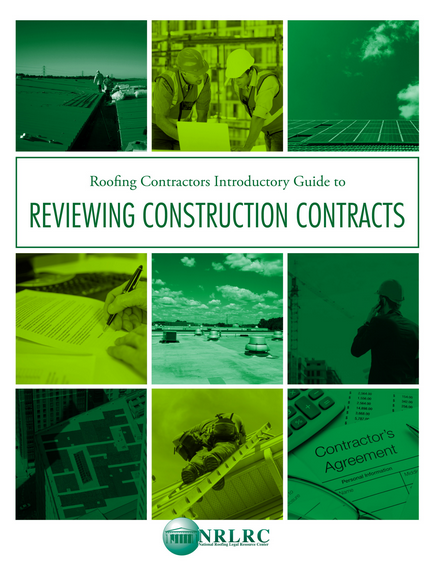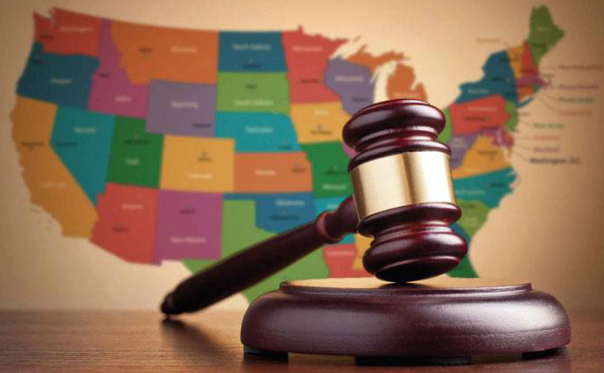Ever been told to dance like nobody’s watching?
That advice is great for weddings and end-zone celebrations. But after wrapping up a week-long trial, your exhausted, cynical lawyer probably thinks “write every email like it will one day be a courtroom exhibit” is far better advice than the dancing thing.
This might sound needlessly frightening, but for construction professionals working on challenging projects, documentation can make or break the ability to successfully negotiate — or, if it comes to it, prove the merits of — a dispute with another party.
Below are some items that, if handled properly, can help companies establish their side of case and that, if handled poorly, can constitute problem areas.
Contract Documents and Statutory Notices
Many legal rights on a project come from the parties’ written contract agreement. Basic measures like ensuring the both parties have signed — and not just received — the contract can be crucial to preserving these rights. It is also a good practice to keep a copy of the signed contract and all attachments in a location where it is accessible to project managers and others who have authority to deal directly with the other party. As always, reading the contract in advance, and perhaps consulting with an attorney before signing the contract, is an important practice.
Having a checklist for every project can also help ensure that good practices are routine, and not just employed for especially difficult projects. If practices are done on every project, no matter the size or complexity, it is easier to ensure that companies will comply with them.
Potential project checklist items include:
- Has a written contract been signed by both parties and saved in the project file?
- Are certificates of insurance on file for all subcontractors?
Checklist items for privately owned projects:
- Have any statutorily required project statements, notices of contract, or notices of subcontract been properly filed and served?
- Have any statutory prerequisites to filing lien claims been met — such as North Carolina’s requirement to serve a Notice to Lien Agent?
Checklist items for publicly owned projects:
- Has the payment bond been obtained?
- If required by state or federal statute, has the payment bond surety information been sent to all parties?
- Have statutorily required notices of contract or notices of subcontract been properly served or filed?
Notices
Most written prime contracts and subcontracts require parties to give written notice to the other party to communicate various things, like change orders, claims for extra payment, or the other party’s breach or default. Failure to provide notice using the proper means and by the required deadline can prevent contractors from asserting their contractual rights. To ensure compliance with contract provisions, ensure that a copy of the contract is accessible to the project manager and that notices are dated, signed (if applicable), and that copies of the notice are preserved. If notices are sent by email, a good practice is trying to obtain a delivery or read receipt. Notices to cure should state specifically what is expected of the other party in order to cure a default and what will occur if the other party does not cure the default.
Where Notices are concerned, do the following:
- Keep a copy of the signed, written contract in a place where project managers can easily access it.
- Send requests for change orders and additional time or money in writing.
- Send notices to the right person. The written contract usually dictates to whom notices should be sent, and sending notices to a person with managerial authority is generally recommended.
- Consult with an attorney and send a written notice before invoking contractual remedies like self-correcting defective work, supplementing a subcontractor’s workforce, or terminating a subcontractor.
- Maintain copies of any letters, correspondence, or notices sent to another party, including copies of proofs of service like Certified Mail cards, email read receipts, or fax confirmation sheets.
Confirming Emails
Emails and text messages constitute the bulk of the written communication on most construction projects today. Both emails and text messages — whether they are sent from work or personal devices — are discoverable in legal cases, meaning that companies will be required to provide them to other parties in the case during the litigation process. This may be true whether or not the company or sender believes they are relevant. The implication is twofold: contractors should send emails and text messages with care and should assume that they could one day be seen by an opponent, judge or jury. On the other hand, when used effectively, emails and text messages can be used to accurately document parties’ agreements and understandings about what will occur on the project.
With all communications, but particularly email, attorney-client privilege is an additional concern. The attorney-client privilege protects communications between an attorney and his or her client. The client has the right to keep these communications confidential in nearly all situations. However, the attorney-client privilege can be waived if communications are shared with third parties. The ease with which people can forward and share emails makes waiving the privilege dangerously easy. In some situations, waiving the privilege once can mean waiving it in future situations.
Below are some do’s and don’ts that can result in helpful, not harmful, emails.
DO
- Send emails to document conditions on a project.
- Send emails to confirm important conversations, especially ones about dates of mobilization or that contain notices.
- Respond to any emails that accuse you or your company of failing to fulfill any contractual obligation.
- Ensure you have access to the emails of any employees who leave the company.
DON’T
- Don’t forward your correspondence with your attorney to others. This could waive the attorney-client privilege.
- Don’t copy people outside of your company on emails to your attorney. This could waive the attorney-client privilege.
- In a dispute over fulfilling contractual obligations, don’tlet the other party have the last word. If you are sent an email accusing you of wrongdoing, not responding to an email can make it appear that you agree with it.
- Don’t send emails from your personal account. If you ever need to pull and produce all of the emails related to a project, it will be much easier to do if you are only pulling from one account per employee.
- Don’t use profanity or offensive language or phrases. If there is anything you would be ashamed of a judge or jury seeing you say, think twice before typing it.
Daily Reports and Photographs
Daily job reports, if done well, can serve as a diary of what occurred on a project. While emails can be helpful, too, photographs do not lie, and daily reports with objective information like number of workers, hours worked, and weather conditions can effectively corroborate a company’s narrative of a story or dispute another side’s version.
These types of documents typically have to be authenticated in court in order for them to be admissible as evidence, so if possible, it is best for the person who wrote a report or took a photograph to be able to testify about the origin of the document itself.
Recommended procedures include:
- Have competent, trusted employees, such as project managers, take photographs and complete daily reports.
- Have a system in place for uploading photographs and saving them in the construction file so that they are centrally located, not just stored on employees’ individual phones or tablets.
- Ensure all photographs are dated or otherwise stored so that dates and identities of the people who took the photographs can be accessed.
- Complete daily reports documenting conditions like date, weather, number of workers, and anything pertinent occurring on the project site.
About the author: Caroline Trautman is an attorney with Raleigh, N.C.-based Anderson Jones PLLC. Questions about this article can be directed to her at [email protected].
Author’s note: The above article is not, and should not be construed as, legal advice. For specific advice, consult with an attorney licensed in your state.





Be the first to comment on "Proper Documentation Can Be the Key to Dispute Resolution"